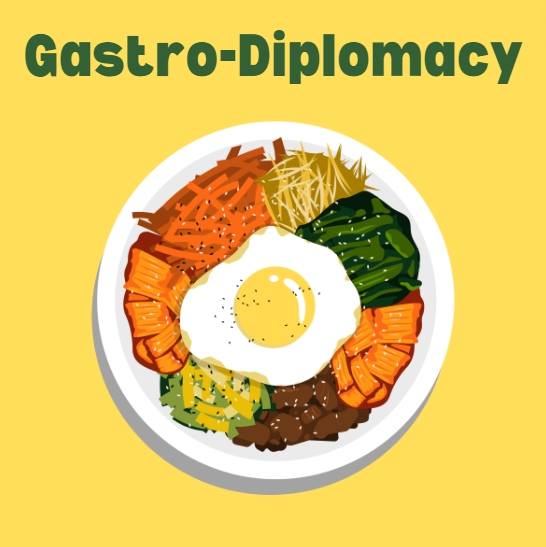Imagine this: rich mango rice accompanied by perfectly caramelized Pad See Ew, all complemented by a refreshing Thai Milk Tea. Internal fireworks set off inside the brain as savoring sweet and tangy mango notes mingle with fragrant jasmine rice, leaving a strong craving for more. Thai food is a staple comfort food that can be found everywhere — quite literally, everywhere. CNN reported that despite Thai people making up only 0.1% of the American population, there are more than 10,000 Thai restaurants in the United States. This is actually not much of a coincidence — instead, a strategic move known as gastro-diplomacy.
Gastro-diplomacy is a method that countries use to gain international recognition by spreading the influence of their food. Thailand is ubiquitous in America because Thailand’s government has spent a lot of money encouraging them to open new restaurants. In fact, the government program, Global Thai, has an annual budget of 16 million dollars set aside as loans to support Thai restaurants across the world. It also coined the term Gastro-diplomacy to promote its food and recognize Thailand itself in foreign places. The success of this program sets a key example in the world of using food as a political move. The objective deliciousness of Thai food is not only able to set a positive connection to Thailand but also improve its sphere of influence and reputation amongst more people on a global scale. Despite being an already prominent destination, tourism has skyrocketed in Thailand due to the popularity of Thai food, which has encouraged even more foreigners to visit the country.
There are also many other countries that use food as branding, such as Taiwan, which recently launched 20 million euros in their gastro-diplomacy program, Japan, South Korea, and China. The promotion of Kimchi in restaurants and Mukbangs spread all over the internet were critical in creating revenue off of food content for South Korea. The use of culture and food to captivate tourists is a very effective strategy to spike engagement. Cambodian cuisine has also been gaining more attraction through gastro-diplomacy when they advertised their fermented fish paste in prahok as the new savory sensation.
Yet despite the amazing and growing path of gastro-diplomacy, there still also exists the evil brother of gastro-diplomacy, and that is gastro-colonialism. When gastro-diplomacy is used as a means of increasing recognition of the country, gastro-colonialism is a term coined by Craig Santos Perez in 2013 when the local Hawaiian population depended on cheap processed foods shipped to the island because their indigenous food was destroyed by floods. This reinforces gastro-colonialism because local people were forced to trade their culturally-significant food for a reliance on unhealthy food imports from big multinational corporations, making their suffering an intersection of race and food. This example is also prominent in the town of Merauke, Indonesia. The food program called Merauke Integrated Food and Energy Estate aimed to solve an existing famine but only exacerbated the issue by giving land access to corporations. The corporations used the farming land for oil palm and industrial purposes, and presence of these large companies also scared away wild animals that were critical to providing protein for the local people. The lack of meat and difficulty of outsourcing meat made the local diet lose access to fresh meat. The nutritional value of changing from sago, tubers, and wild meat to shipped foods such as chicken, rice, and tempeh further decreased the freshness of their diets. The surge of artificial sweetener and sugar in imported food also developed into the health impacts of the local population. The further suffering of food due to the occupation of foreign corporations and harming the local farmers that also lose land for their plantations.
Health from food colonialism is devastating for local populations, but the rise of colonized countries pushing for the acknowledgement of their foods across the globe is how they can fight against oppression in food. Food has extended far beyond what goes into your stomach, but sparks a whole new conversation on what it really means to a government and country, as well as the precedent of food. Respect for culture and traditions is the secret sauce that holds together today’s diverse culture. From food diplomacy to food colonization, the abundance of diverse restaurants is a unique privilege of being a Southern Californian. Now imagine sitting back in that diner, as you get to enjoy experiencing multivariable flavors from across the globe, think about that plate and inspire you to think about where it came from.

















